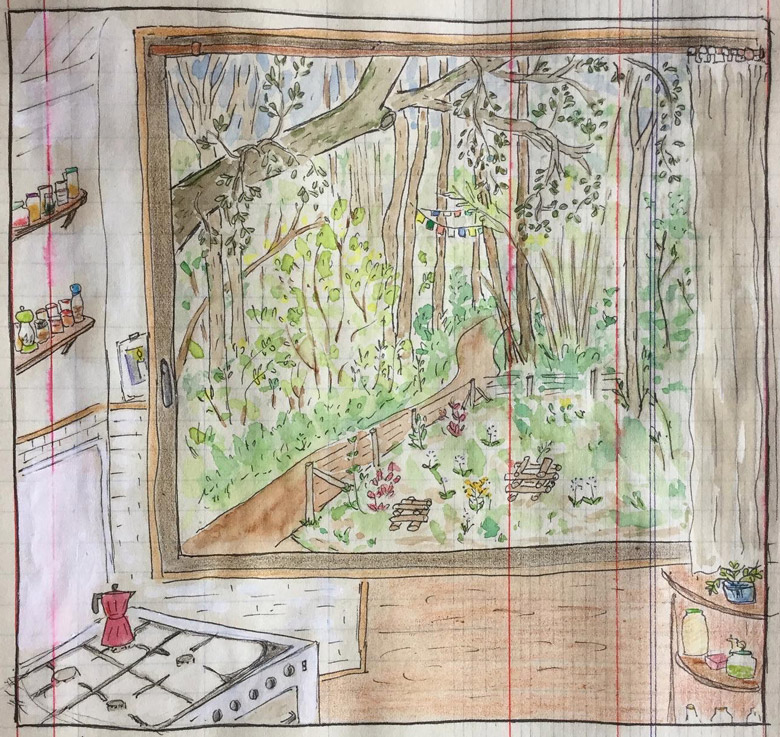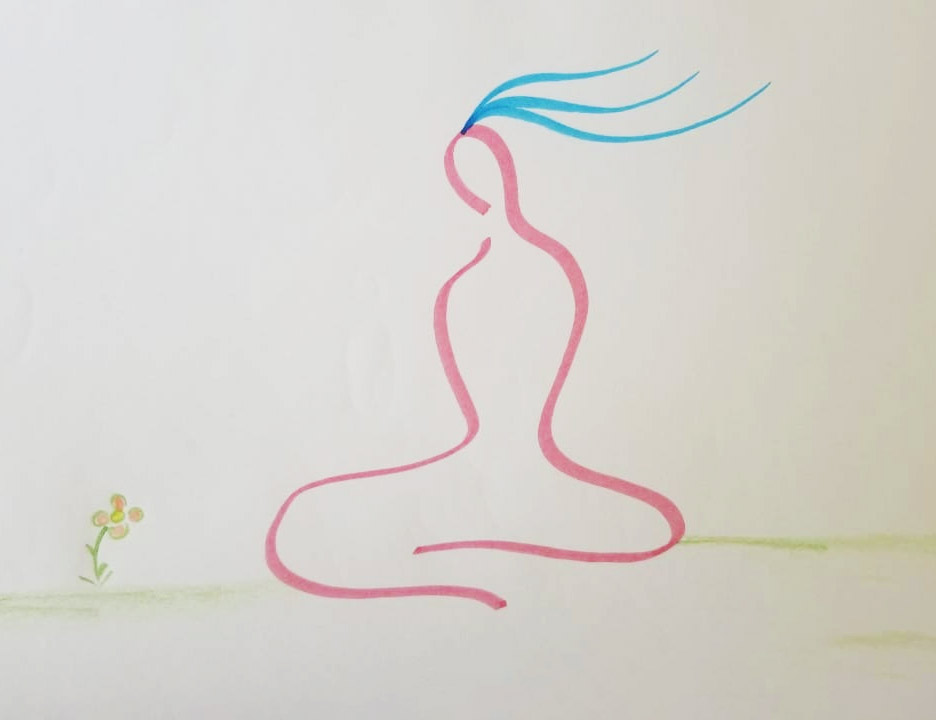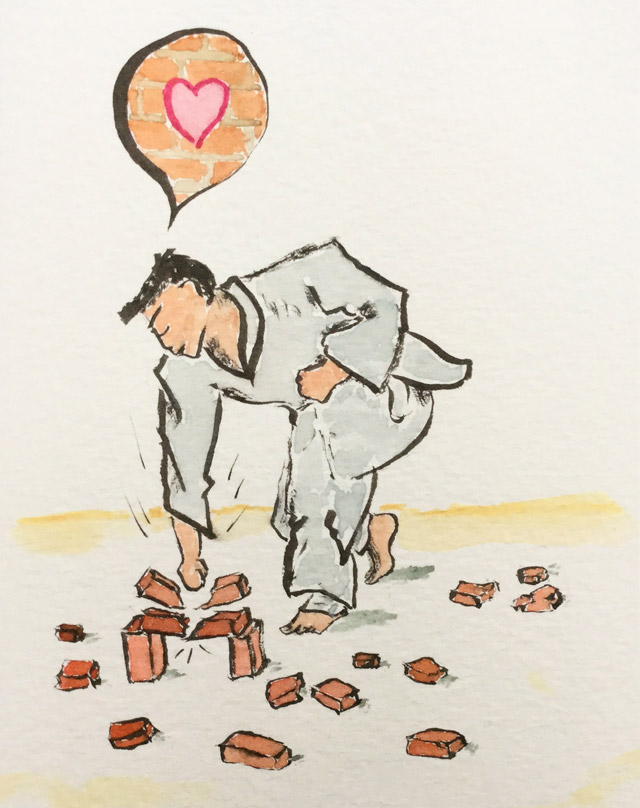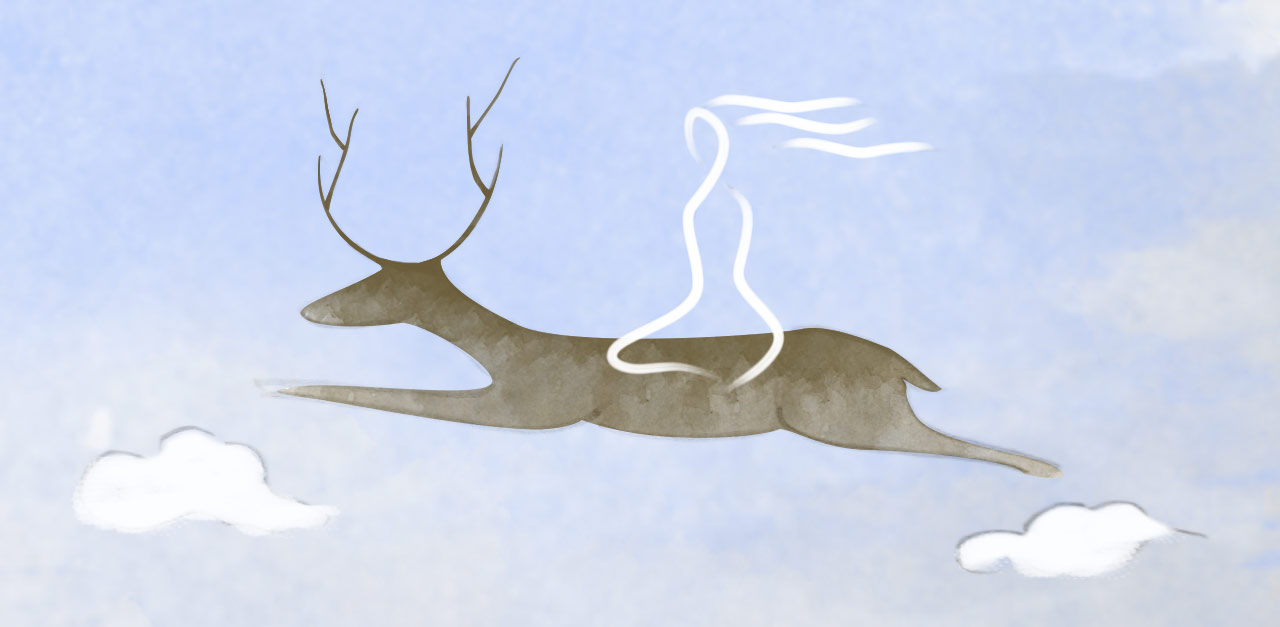Tenzin Wangpo: Mind Training – Key instructions for a daily transformation
Dear friends,
In this particular time when it is not yet possible to meet to continue the activities of the association, the Bodhi Path France team wished to make available a teaching given by acharya Tenzin Wangpo on February 14th, 2020 in Irun (Spanish Basque Country) on the theme of Mind Training (lojong).Tenzin Wangpo took this date of Valentine’s Day, a romantic date, as a thread and extended it to love in a more general and vast form.
As the teaching was given orally, the text was slightly reworked in writing by our translation team. We have taken care to keep the meaning of what was given by Tenzin Wangpo, nevertheless we apologize for any errors that may have slipped in this work..
The text, divided into several parts, will be shared over the next few weeks in the form of four newsletters.
Hoping that this teaching can be beneficial, we wish you a nice reading!
[Provisional English translation]
Happy Valentine’s Day!
It just so happens that the subject we are going to talk about tonight, lojong, is really connected to Valentine’s Day and how to celebrate it, how to understand it.
The real purpose of Valentine’s Day is to be aware of our closeness to our loved ones. We can become aware of our mutual presence, a presence that requires no words; simply being present to each other in silence. This, however, has a form of sound; it has a good feeling to it.
It can be our friends, our loved ones, our family, everyone in our lives… When we share this presence, without words, just next to each other, we feel something special, it is perceptible.
Let’s think of our close friends, with whom we feel a strong sense of intimacy, a great sympathy. As we become aware of this feeling, we see that it is something very special. It’s even stronger than music. Of course, music is something wonderful, but here we can savour this other form of music, an inner music. When you are completely silent, open to the other and immersed in the present moment, you can really hear it, it is the melody of your presence.
By being lucid about this openness, we can also experience our own feelings, what is going on in our minds. We become aware of this sense of openness.
When we are open to others, we then share our feelings, we share our life, we offer our smile and our wonderful way of seeing the world. All this happens when we are open to someone.
This opening is therefore the most important part. It’s like opening our window.
If we are open, just like a window, we let light and fresh air in naturally, without having to push or force anything.
If we are present with openness to what is going on in someone, a feeling of care and attention, a positive feeling will naturally arise in us. There is nothing to force, nothing to learn.
It’s like when we see a baby dog and we open up to him. As soon as we adopt a puppy, right away we open our hearts to him. From then on, our feeling of closeness grows, we take care of it without hesitation. This happens naturally, without us having anything to learn. No one has ever searched in a search engine « how to love my little puppy »! From the very moment we choose to adopt him, when we accept him by our side, we feel concerned about this new friend. From that very evening, if we hear him making noises when we go to sleep, we will worry for him. This happens naturally.
Vigilant care and an attentive presence take place little by little, spontaneously. This gives a clearer, lighter impression in our own minds. If we remained isolated in a dark place, we would only have to open the window to let in fresh air and light. Likewise, this feeling of care that is born in us is a vector of clarity and freshness.
When it comes to meditation practice, this quality of openness is also very important. It is one of the foundations for the development of loving-kindness.
Finding that opening is also finding a place to relax. We offer our mind a moment of rest from the different concepts and judgments that arise. It’s like the very first moment of a new encounter, when we just stay in the openness instead of following what arises. It is also about realizing that this new person I meet, he or she, is just like me.
Then our mind is less busy constructing categories, thinking in terms of « good » or « bad », and we can free ourselves from all those [labels that are like] boxes [in which we usually put things or people].
On the contrary, we approach situations with more simplicity, without worrying about age, gender, etc. When this first moment of contact is lived with this thought of equality, it is the easiest and most relaxed way to enter into a relationship.
We are not worried about a flow of thoughts and concepts.
This relaxed state of mind also lets us feel at ease. Within ourselves, beyond what happens to others, the feeling of openness allows a certain ease. Wherever we are and in any kind of company, we will experience a certain comfort and we will be able to feel close to others.
These are things we already know for the most part, of course. Nevertheless, we can really put them into practice and train into it. In this very first moment of meeting, let us really remember that we are fundamentally the same.
Like me, he or she also wants as much comfort and attention as possible. In the same way, we both wish to be free of unpleasant sensations. We all have that in common. If we can realize this fundamental sameness, then we feel closer to each other, more comfortable and everything becomes easier.
In this way, all the good connections, friendships and harmonious relationships can take root.
Generally speaking, we can take ourselves as witnesses. I can observe how much I care about myself, how moment by moment I care about my comfort and happiness. This is the best example, because I have direct access to my own experience, I know my own feelings. Through this, I can understand that others are no different from me. Even if we are not the same age, culture or religion, it doesn’t matter. On a very fundamental level, we are really identical. By understanding that this basic concern is also the concern of all beings, we can feel connected, regardless of each other’s characteristics. Age, cultural origin or religion are not determining factors. It is through our feelings and our way of thinking or perceiving that we can easily make a connection, beyond differences.
So we discover that all these categories are only created by ourselves. We create all these concepts, gender differences, cultural differences and religious differences. We turn them into concepts and we build a wall that stands in front of the window of our mind. That is how we build, wall after wall, the bulwark of our differences. It keeps us from seeing each other. Even before we see each other, it is our culture or religion that we see. But this is not who we really are.
In the Buddhist teachings, we generally say that the mind is like space. However, these different concepts can make it limited and very narrow.
Meditation practice [gradually] allows us to free ourselves from the various concepts that run through the mind. We thus mark a pause in our judgements of good and bad. It is like breaking down all our walls. Remaining like this, the mind in itself, unlimited, such is the state of meditative absorption.
However, it is not only about meditation, but also about the time we have between sessions, in our interpersonal relationships. It is also important to try to destroy these different concepts and to see ourselves first and foremost as human to human. Only in this way can we really get to know each other and experience this encounter mutually.
In fact, all things such as culture, religion, etc. are really very important aspects of our existence, which give structure to our life, but which must not obstruct our window. We do need load-bearing walls, but not dividing walls in front of the openings.
We need culture, that’s a fact, but that culture should not block the magnificent view that we have in front of our window. By opening the windows, we can enjoy an unobstructed view, a wonderful landscape. In the same way, from human to human, there are so many beautiful things to see. The windows are there to allow us to discover and appreciate them.
So today is a very important day, the most wonderful day of the year. Why? Because today is the day when we have the opportunity to feel and the time to become aware of the most precious thing in this universe, which is within ourselves. We have this chance today to try to experience it within us, to see it, to feel it, the chance to become aware of it.
Without all these beautiful things within us, life would be a desert. However, through our feelings of pure love and pure benevolence, a garden is created in our lives. Every gesture of care, every understanding attention, all these are the flowers that embellish our existence, every moment, day after day. You know, without all this, everything would only be like desert.
It is important to know that the love we are talking about here is not a selfish love, which starts from self concern and could be confused with attachment. Attachment is something that comes from one’s self, that comes from one’ s own desire: « I want him, or I want her. » If this thirst and need for attention is not satisfied, we feel sad, and if we get what we want, we want more.
Love, for its part, begins with others; we wish for their happiness. The words used in Tibetan (jampa) and Sanskrit (maitri) point to this idea.
If we put this notion of jampa – loving-kindness – into practice in our relationships of friendship or with our colleagues at work, we notice that it brings more comfort and happiness in our lives and in the lives of others.
This state of mind has a certain power in itself. It is not of the nature of suffering, but on the contrary generates in us a form of warmth, a form of well-being. When we experience loving-kindness, it is said that on a physical level all the cells of our body feel the presence of this state of mind. It is already, for us, something very positive.
Generally, our meditation sessions begin with the recitation of these few verses: semchen tamche dewa tand dewéi gyu tan denpar gyur chik. They refer to this fundamental equality between all beings, in our common wish for comfort, care and love. This thought is not limited to human beings but includes all living beings, down to the smallest insect. Becoming aware that we are all equal in this search for happiness, we can remain, even if only for a few seconds, in the openness of a love beyond all limits.
This meditation is actually very powerful. If we can develop this state of mind every morning, for example, for 10 or 15 seconds, it will be something wonderful.
Literally, that phrase means, « May all beings know happiness and the causes of happiness. » By connecting deeply with this wish, our mind experiences a state of rest, free from the complications of the ego, freed from thoughts directed towards our own comfort and the habitual tendency to care what others think of us, our image. Concerns and judgements fade away by themselves during those few moments when we direct our mind towards universal love. We then share this love, like a flower, with the whole universe. Every morning is a new opportunity to celebrate Valentine’s Day.
There is nothing that can be seen with the eyes, but loving-kindness, jampa, has a very great power. It’s not something that can be observed with a microscope. However, as soon as we are present to this state of pure love, the mind is filled with an extraordinary power.
In his teachings, the Buddha spoke of the power of the mind. He taught that the smallest elements that make up matter, invisible to the naked eye, are endowed with immense power. In the same way, although immaterial, the mind has incredible capacity.
Happy Valentine’s Day! Every moment a Happy Valentine’s Day.
Illustrations:
Acharya Tenzin Wangpo: parts 2 and 4 and Alexandra Gonzalez (the interpreter): parts 1 and 2




